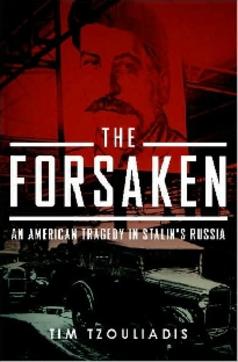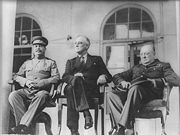
A Review of the book
The Forsaken, An American Tragedy In Stalin’s Russia
by Tim Tzouliadis
In times of social and political turmoil, it is not uncommon for men to grasp for what appear to be easy solutions. Oftentimes, these impulsive decisions can have disastrous consequences. There is nothing meritorious about change in and of itself. The virtuous person prayerfully reasons through the options before making decisions. Men with little virtue grab desperately for anything that, on the surface, appears will improve their lives.
An example would be the outbreak of Protestantism in England. With the destruction and confiscation of the convents and monasteries, whose land would be safe in the eyes of a covetous ruler? What happened to the sick and the old with the dissolution of the hospitals run by the religious orders?
Another example would be the French Revolution. The so-called moderates, the Girondians, did not have the foresight to see where the revolution would eventually end up, until it was too late to save their own heads.
Hitler initially enjoyed much popular support, leading to the ultimate destruction of Germany and the death and displacement of millions.
A serious, reflective man of Catholic virtue could have seen where these movements would ultimately lead. Sadly, so many believed only in empty slogans.
The book, The Forsake: An American Tragedy In Stalin’s Russia by Tim Tzouliadis is a stark and tragic account of what happened in the 1930’s to thousands of Americans as a result of not knowing what communism was all about.
This book is tragic from beginning to end. It is not a pleasant book to read, but it is a lesson from which the wise will learn.

During the 1930’s, at the height of the Great Depression, the Soviet Union advertised extensively in the United States for skilled factory workers to move to Russia to help build up their fledgling “nation.” They offered double wages, free housing, free health care and free passage for the workers and their entire families. What a wonderful opportunity!
Soon after they arrived the tragedy began, and ended in the enslavement and ultimately, the deaths of all but literally a handful.
These Americans had their passports confiscated or were forced to sign documents renouncing their citizenship. After that point, they became Soviet property.
In the very beginning, things went well. However, when some of these leftist Americans began expressing ideas that were contrary to Soviet doctrine, they began disappearing in the night, together with their wives and children.
Employees at the American Embassy were unnerved upon hearing about the black secret police vans that arrested whole families throughout Moscow. They also heard about the gunshots of the execution squads. They did not hear of the tortures since that was done in the basements of the prisons.

While leaders talked, the abandoned American were conveniently forgotten.
Some of these Americans tried to contact the embassy, but to no avail. The American government of that time was not interested in jeopardizing its friendship with the Soviet Union.
Those who were not executed were sent to Siberia, where most died in the first three weeks due to exposure combined with malnutrition and injuries suffered from torture. The only ones to survive (and they were incredibly few) were those who had particular skills that the Soviets valued. One survivor was a painter who was assigned to paint propaganda posters. He worked in a warm place with more to eat.
Besides the horrible tragedy of the victims, the book relates the unforgivable crime of those who defended the Soviets and denied what they knew was happening to these forsaken Americans.
The list included well-known names such as Henry Ford, writer George Bernard Shaw, singer and actor Paul Robeson, Pulitzer prize winner Walter Duranty, Ambassador Joe Davies, husband of Marjorie Merriwether Post, President Franklin Delano Roosevelt and President Eisenhower.
While this is not a pleasant book to read, it teaches an important lesson. Sometimes the truth is unpleasant to face, but it cannot be avoided by ignoring it.
Rather, one should practice a resolute and holy vigilance when attempts are made to force the public to accept the unacceptable.

